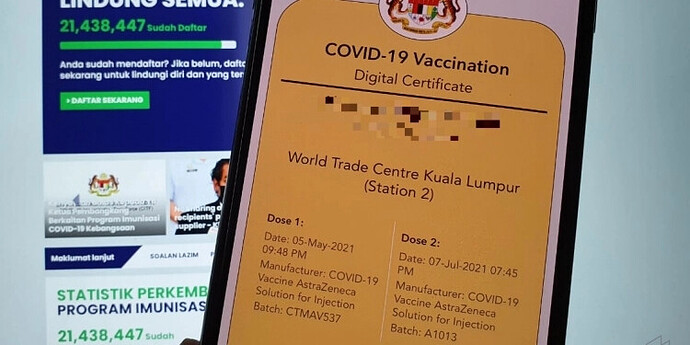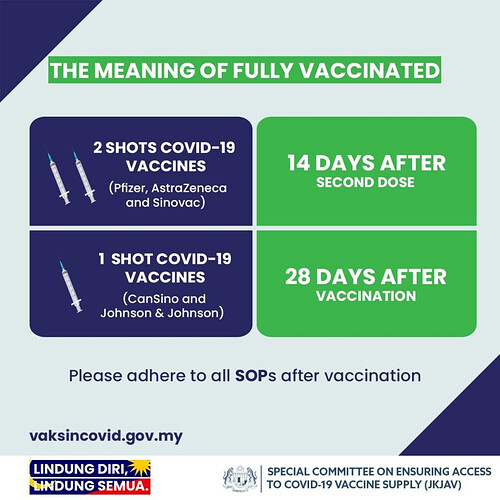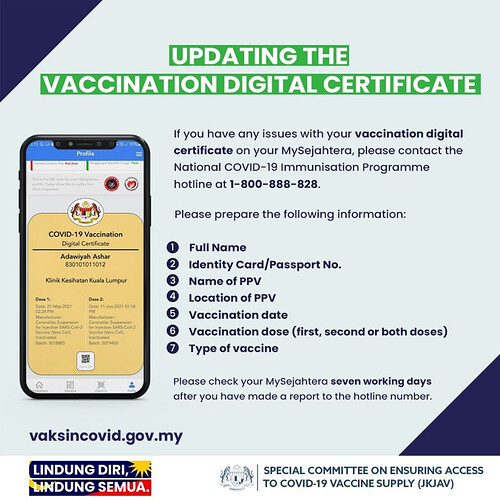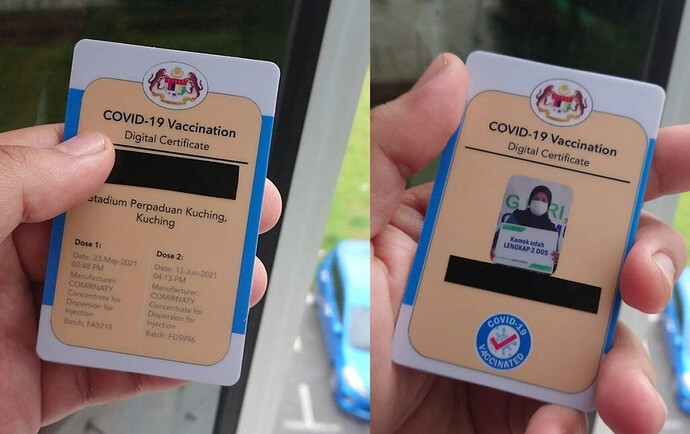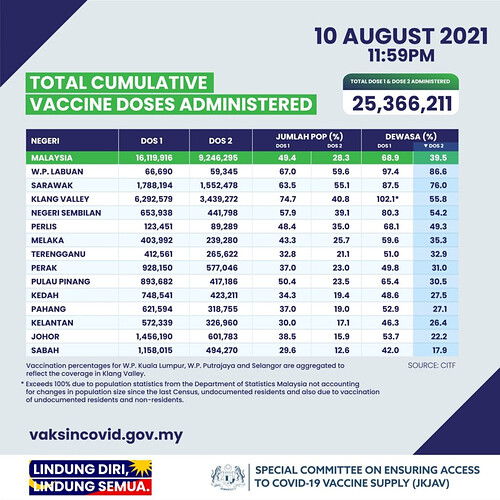The Ministry of Health (MoH) will be thoroughly investigating the authenticity of COVID-19 vaccine certificates as restrictions are loosened for fully vaccinated individuals. Action will be taken against individuals who attempt to fake a vaccination certificate in the MySejahtera app. As of now, the MoH is yet to determine the penalties that will be imposed for forging a vaccine certificate, but it will be discussed in its upcoming special meeting.
A person is considered fully vaccinated two weeks after receiving their second dose of the AstraZeneca, Sinovac or Pfizer vaccine. Individuals with single-shot vaccines such as Johnson & Johnson as well as CanSino would be seen as fully vaccinated 28 days after getting the shot.
States under Phase 2 and beyond of the National Recovery Plan (NRP) also see loosened restrictions on selected activities for fully vaccinated folks. This includes dining in at restaurants, contactless recreational activities as well as tourism within the same state.
Under the relaxed SOPs, fully vaccinated parents will be able to cross district and state borders to visit their children below 18 years old. Long-distance couples which are fully vaccinated may also cross district and state borders to visit each other.
If you face issues with your digital vaccine certificate status update, you can contact the National Immunisation Programme hotline at 1800-888-828.
Possible verification challenges
To prove that you are fully vaccinated, you need to display your vaccination certificate in the MySejahtera app. The problem with the app is that there’s no quick way to verify if a person has fulfilled the definition of “fully vaccinated”. At the moment, all individuals who have completed their single-dose or two-dose vaccines will be given the same digital certificate in orange.
This poses a potential issue when dining in, as restaurant staff are likely to spend more time verifying the dates of customers’ vaccination doses to ensure that the 14-day or 28-day post-period has passed. The verification process could also be less efficient if there is a large number of customers. The solution could be as simple as assigning a different colour to the digital certificate of a person who is fully vaccinated.
It was also recently discovered that physical vaccination cards were being sold on Lazada for as low as RM15. Users were able to add a custom picture alongside their vaccination details, which would basically allow anyone to input false information. The listing has since been taken down as it isn’t legitimate. In fact, users are not recommended to get vaccination cards as the government currently does not recognise nor does it produce them.
Furthermore, policemen in Penang have asked fully vaccinated individuals to produce a screenshot of their vaccination certificate to speed up checks at roadblocks. While this is intended to save time, this could be abused as photos can be easily manipulated. Then again, it is also understandable why a screenshot would be helpful at roadblock checks, in the event that a bad internet connection causes issues when loading the MySejahtera app.
As of August 10, 49.4% of the Malaysian population has gotten their first dose and 28.3% have gotten both doses of the COVID-19 vaccine. Labuan is still the highest state with the highest vaccination rate, as 59.6% of its population having completed both doses. Sarawak is the second highest, with 55.1% of its population having received two doses. This is followed by Klang Valley, where 40.8% of its people have completed both doses.
Source: SoyaCincau
